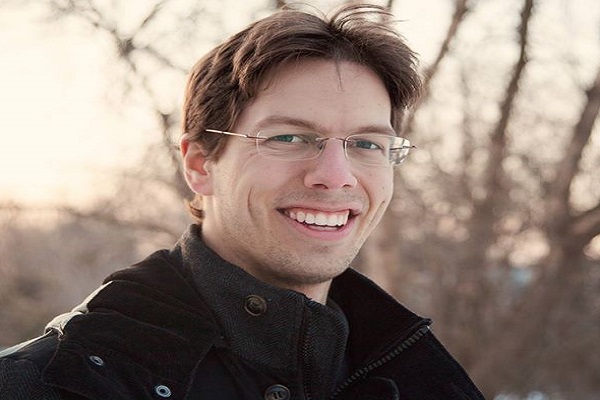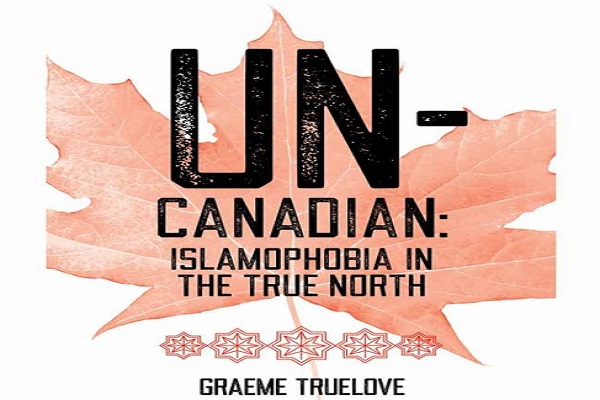Most Canadians Oppose Islamophobia: Author

“I think it’s really important for the rest of us to make it absolutely clear that these people do not represent us, and are not our allies, and important for political parties to say that they don’t want their support, don’t want their donations, and don’t want their votes,” Truelove told IQNA in an interview.
Graeme Truelove is the author of the critically acclaimed biography “Svend Robinson: A Life in Politics” (New Star Books, 2013), which was shortlisted for the Roderick Haig-Brown Regional Prize and listed on the BC Bookworld Bestseller List. He was a contributing author of “House of Commons Procedure and Practice”. Truelove has worked for Frontier College as a literacy teacher in a remote Indigenous community and volunteered for the Ontario Public Interest Research Group, among other activist groups. He has worked on Parliament Hill since 2001. His latest book “Un-Canadian: Islamophobia in the True North” is a provocative warning to Canadians that the values they cherish are being eroded through a pattern of political, legal and social prejudice directed towards Muslims in Canada since September 11, 2001.

Following is the full interview:
Q: What made you interested in the topic of Islamophobia?
A: I’d been following the Omar Khadr story since it first became known. We’re close to the same age, and it really struck me, as the years went by, how I was living this normal Canadian life and he was still in Guantanamo Bay. I thought it was incredibly wrong that Canada allowed that to happen, and was in fact complicit in his captivity. So, a few years ago, my wife Janine and I happened to be on a long drive and we were discussing his case. She started explaining how what was happening to him was connected to Islamophobia, and then began pointing out just how many other examples there have been in Canadian society. And it occurred to us that there wasn’t really a readable, non-academic book that painted that picture in its entirety.
Q: In the title of your book you call Islamophobia “Un-Canadian”. Don’t you think it is not a common phenomenon in Canada?
A: Most Canadians oppose Islamophobia, absolutely. That’s why I call it un-Canadian. There’s a lot of data that backs that up, and I’ve got some good examples in my book. Unfortunately, there is also a vocal minority that is Islamophobic that has had disproportionate attention from media and politicians and disproportionate influence on public policy. I think it’s really important for the rest of us to make it absolutely clear that these people do not represent us, and are not our allies, and important for political parties to say that they don’t want their support, don’t want their donations, and don’t want their votes. I think there’s also a segment of society that isn’t Islamophobic but has maybe supported some policies that are, simply because they haven’t seen or understood the impact on Muslim people. I hope that my book can be part of what changes that.
Q: Is Islamophobia in Canada influenced by Islamophobia in the United States?
A: I think there’s very little in our culture that isn’t influenced by the US to some degree. And so when you have political figures who are saying bigoted things, it creates permission for others to be bigoted as well. And naturally, if that’s where their discourse trends, we have to be very careful to make sure that doesn’t happen here, as well. I think what we’ve seen so far is that the Islamophobic minority in Canada has been very influenced by their counterparts in the US, but mainstream Canadians have not been. We need to make sure it stays that way.
Q: What are the main grounds for such a degree of anti-Muslim sentiments in Quebec Province?
A: First of all, Islamophobia is a problem across Canada. We’ve seen hate crimes across the country, and we’ve seen national policies that have contributed to prejudice and discrimination against Muslims. There are also a lot of issues specifically affecting Quebec. I think there are a few different reasons, but one of them is probably that some in Quebec have a discomfort about the role of religion in the public sphere in general because they remember life before the Quiet Revolution, when the Catholic church had such an overreaching influence on Quebec society.
Q: How do you see the reaction of Canadians, especially Muslims, to your book?
A: The reaction so far has been really positive. I’ve had people tell me that it was an important book to write and that they see it as being a valuable part of the conversation. There have been some prominent Muslim Canadians who have been very supportive, including Ihsaan Gardee, the former executive director of the National Council of Canadian Muslims, who actually wrote the foreword to the book. Some Muslim people have told me that they were glad it was written by a non-Muslim, because it’s important for society to be able to engage in self-scrutiny, which in some ways is what the book is. It’s a book about the attitudes and actions of non-Muslims, by a non-Muslim.
Q: What were the reasons you tried to help counter this phenomenon in Canada?
A: The book gets into more detail about some of the specific things that can happen: a national anti-hate strategy, more oversight for security agencies, better training for law enforcement, hiring more Muslim officers, and other things we can do. But mostly, we need to remember that Canadians look a lot of different ways, dress a lot of different ways, and pray a lot of different ways, and we really need to question anyone pushing some kind of message that real Canadians only look one way, or dress one way, or pray one way. If we’ve learned from our history, and there are plenty of examples of discriminatory behavior in Canada’s history to learn from, then we should be able to recognize when a group of people is being identified as somehow not belonging, and put a stop to it.
Interview by Mohsen Haddadi
 Most Commented
Most Commented 


